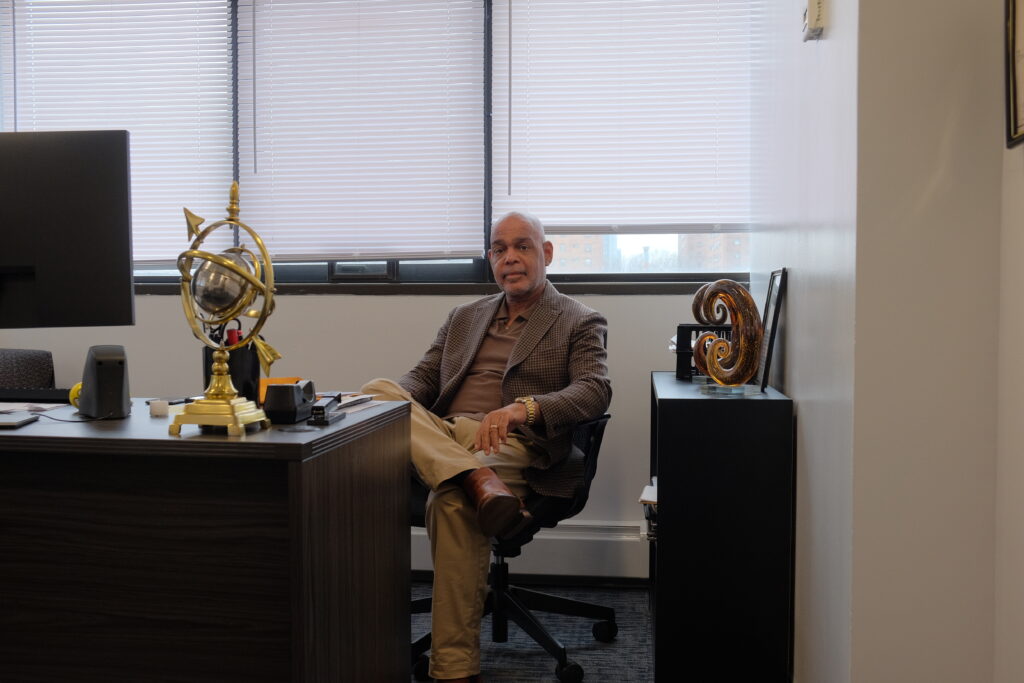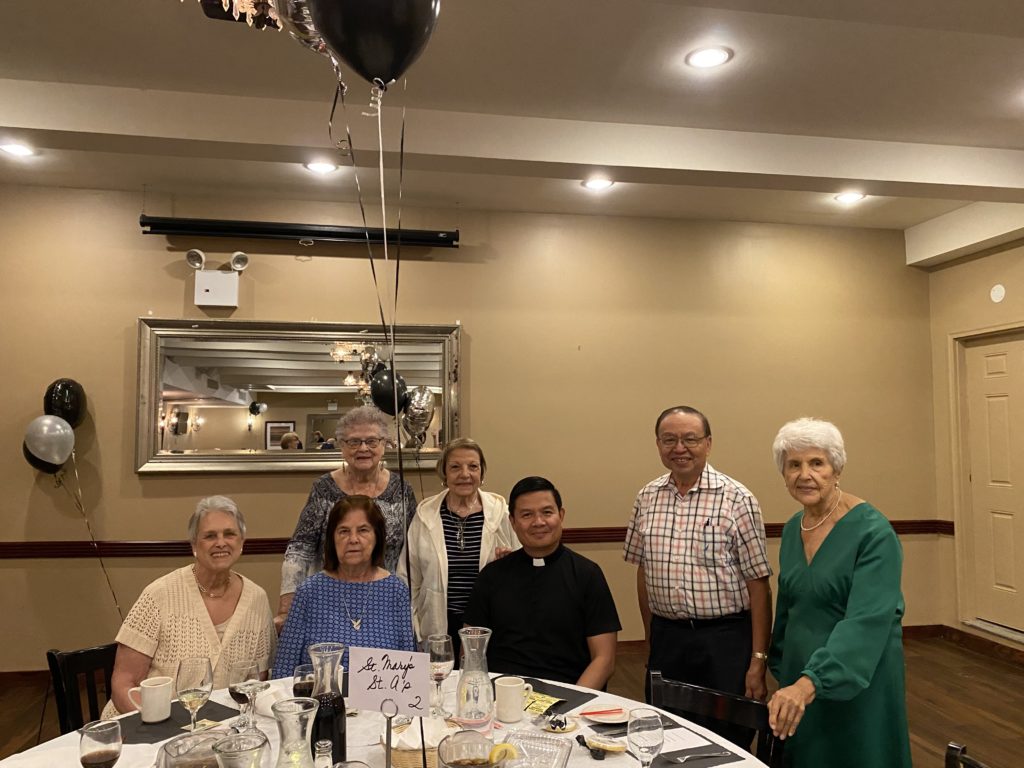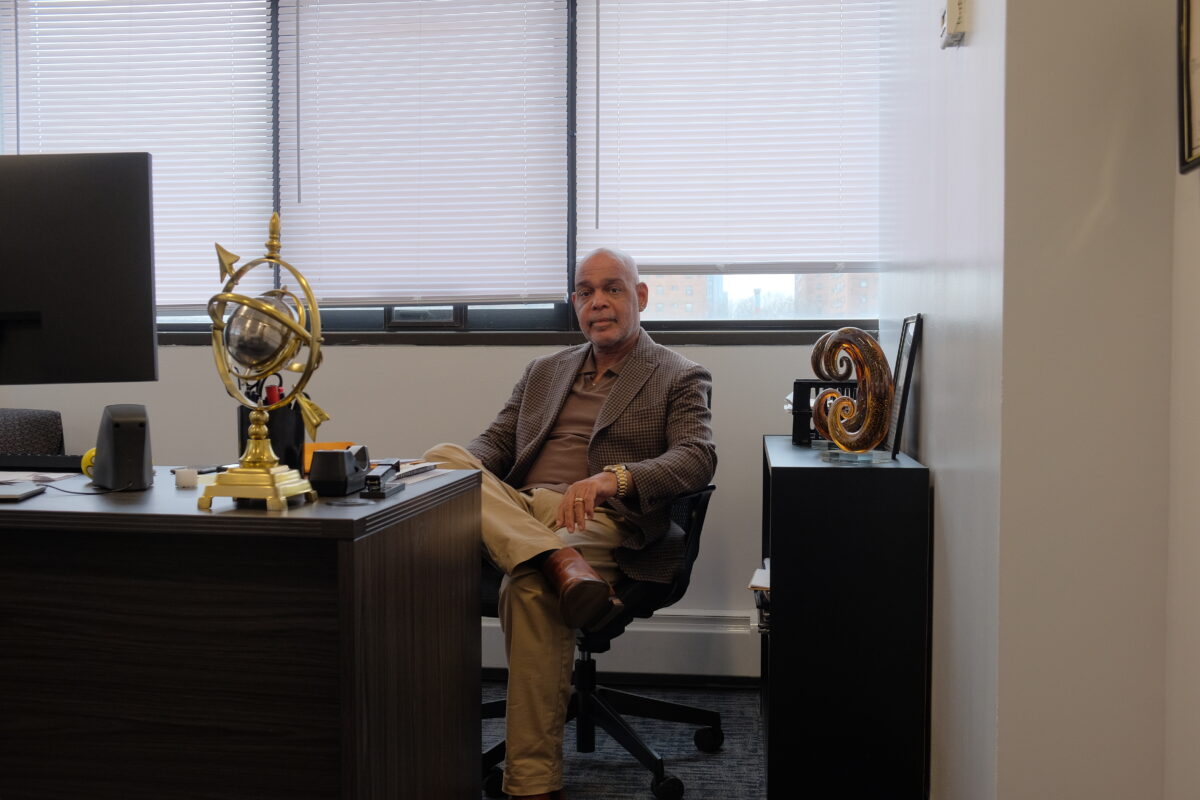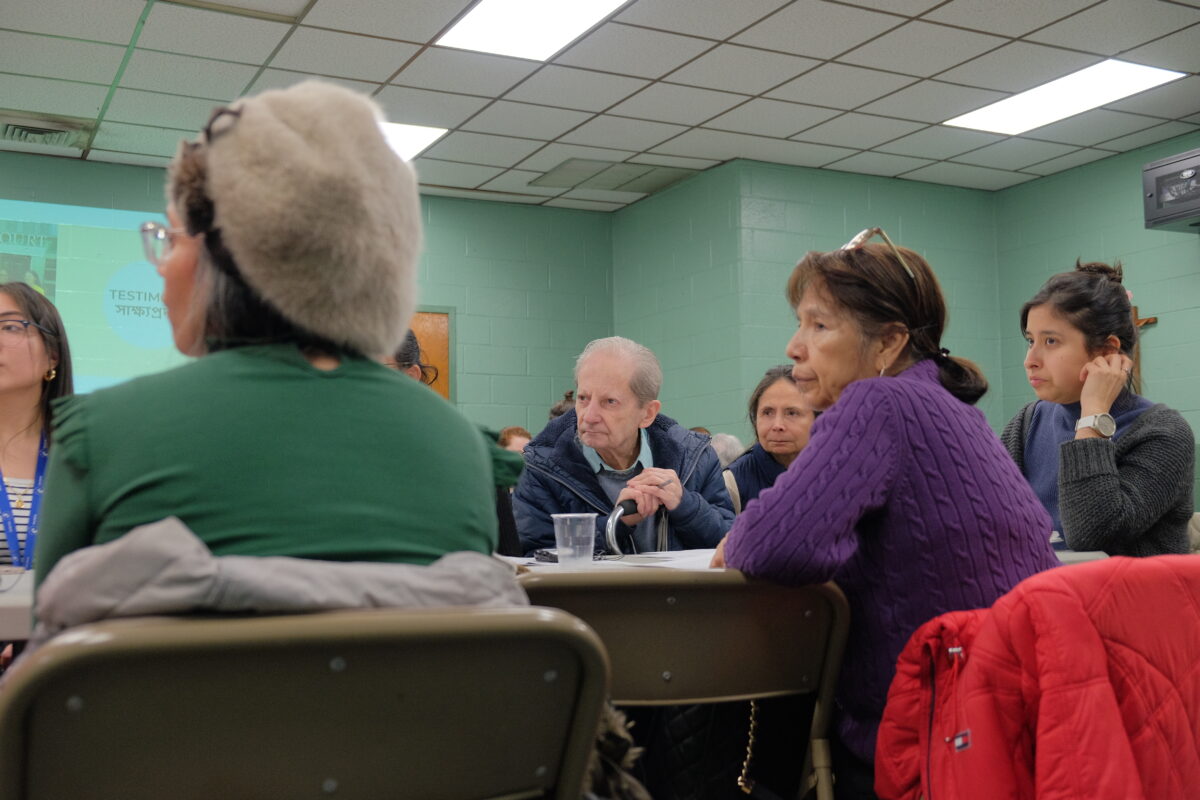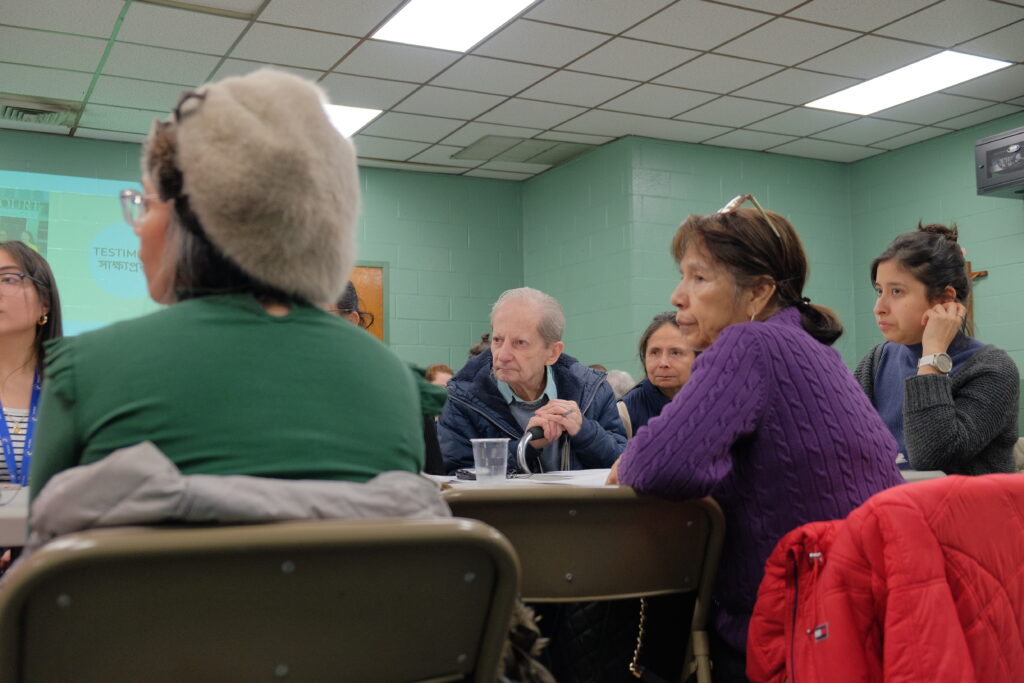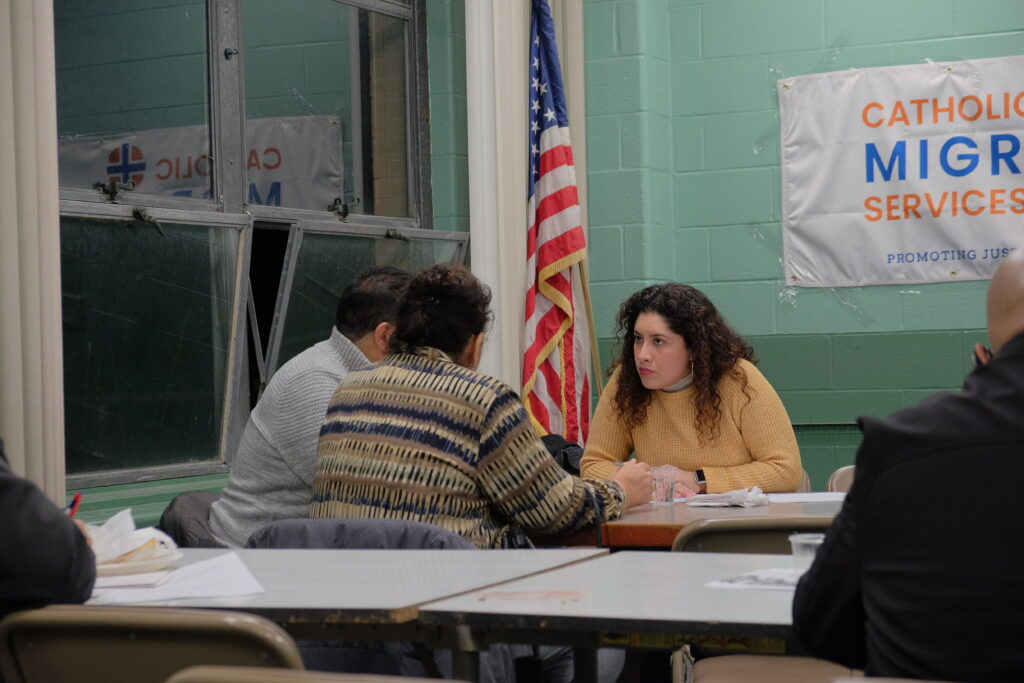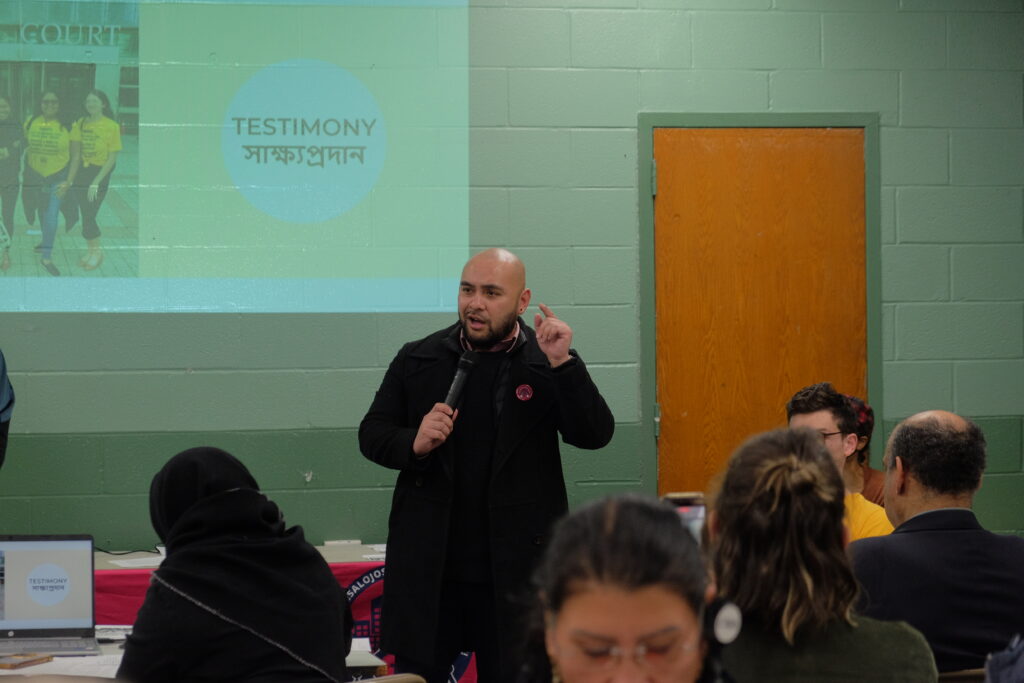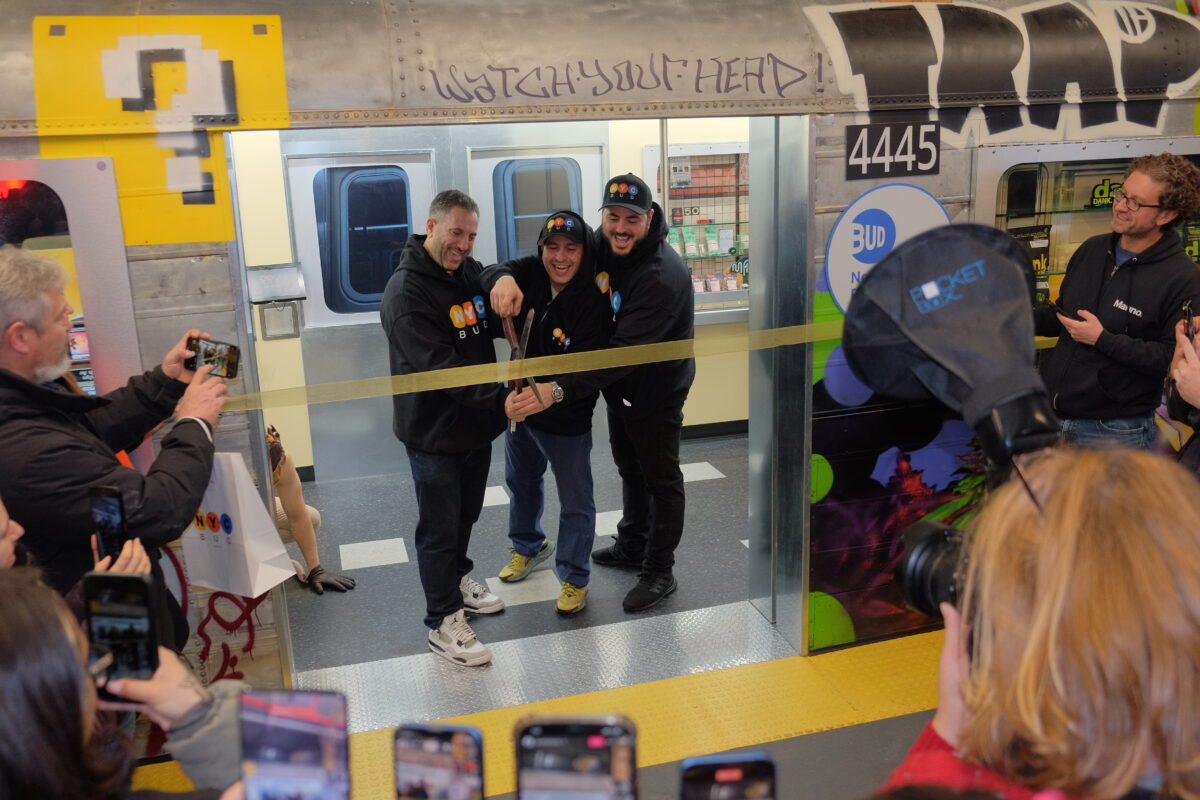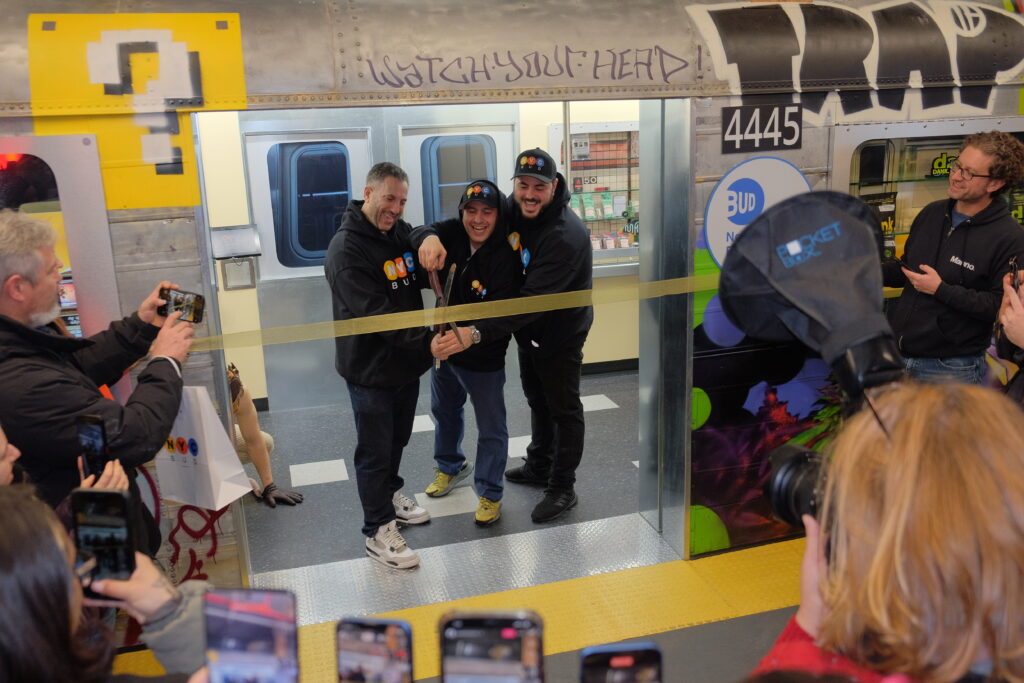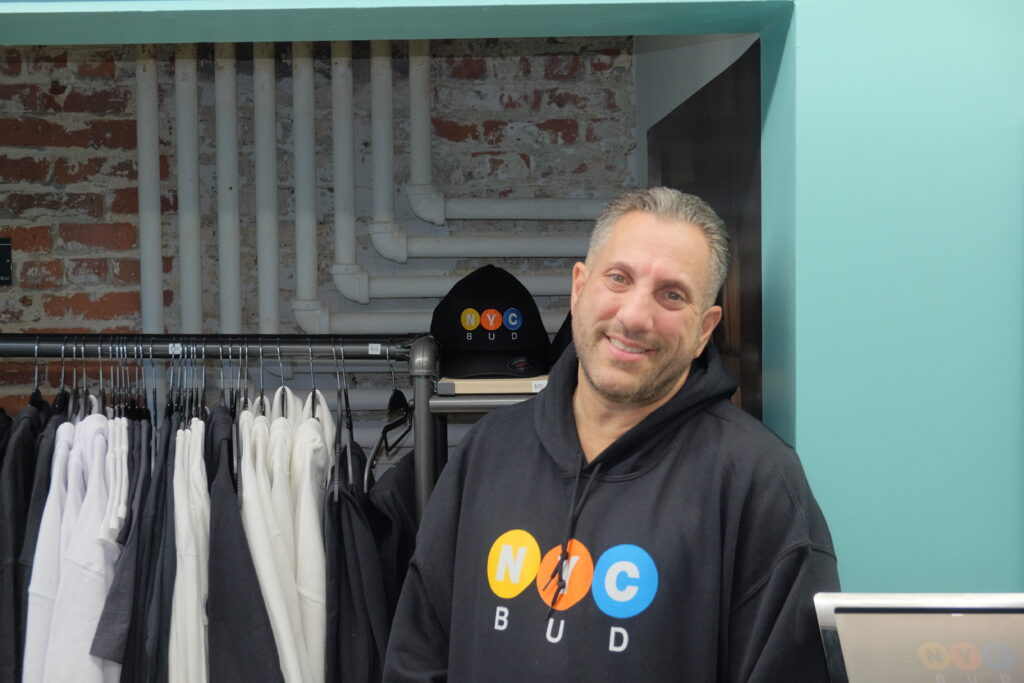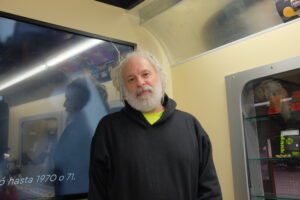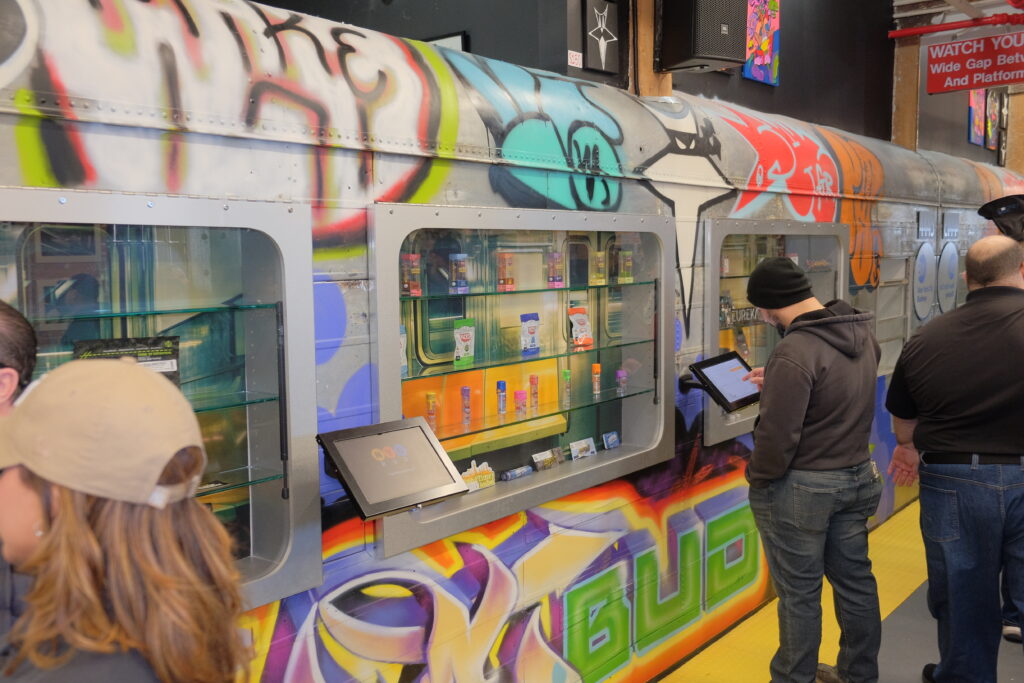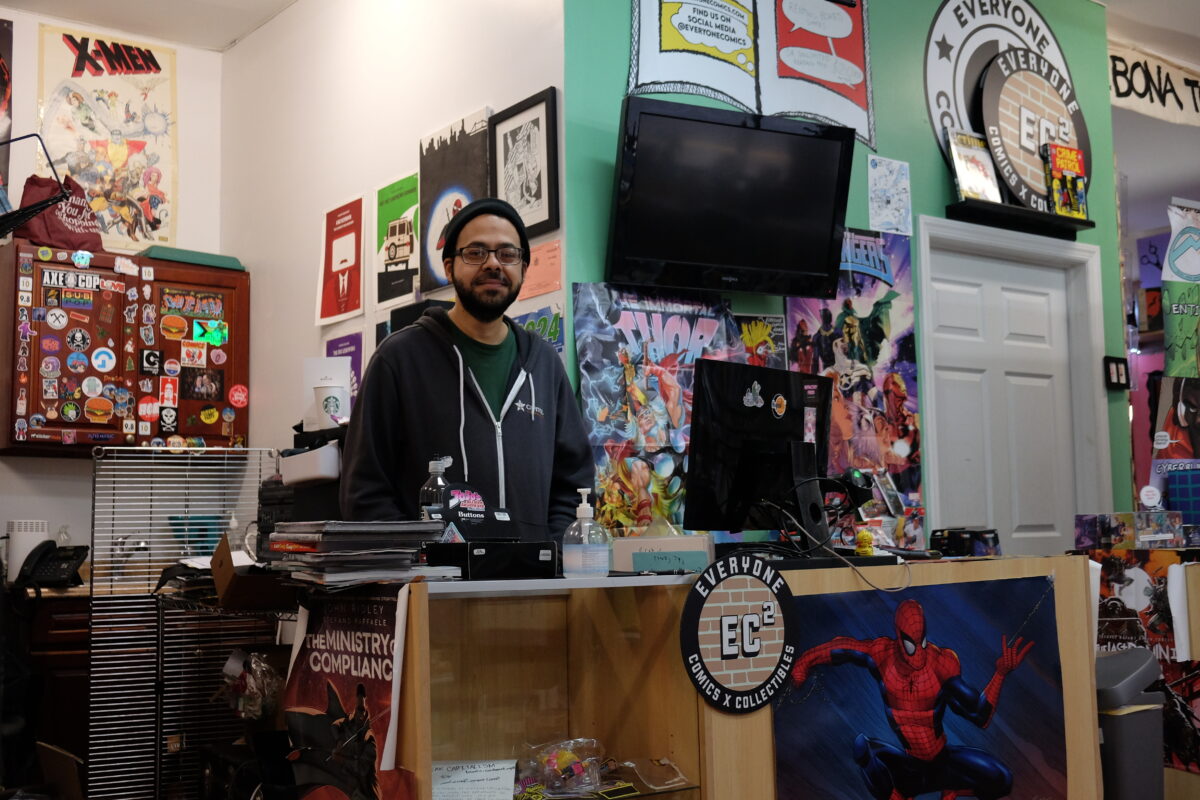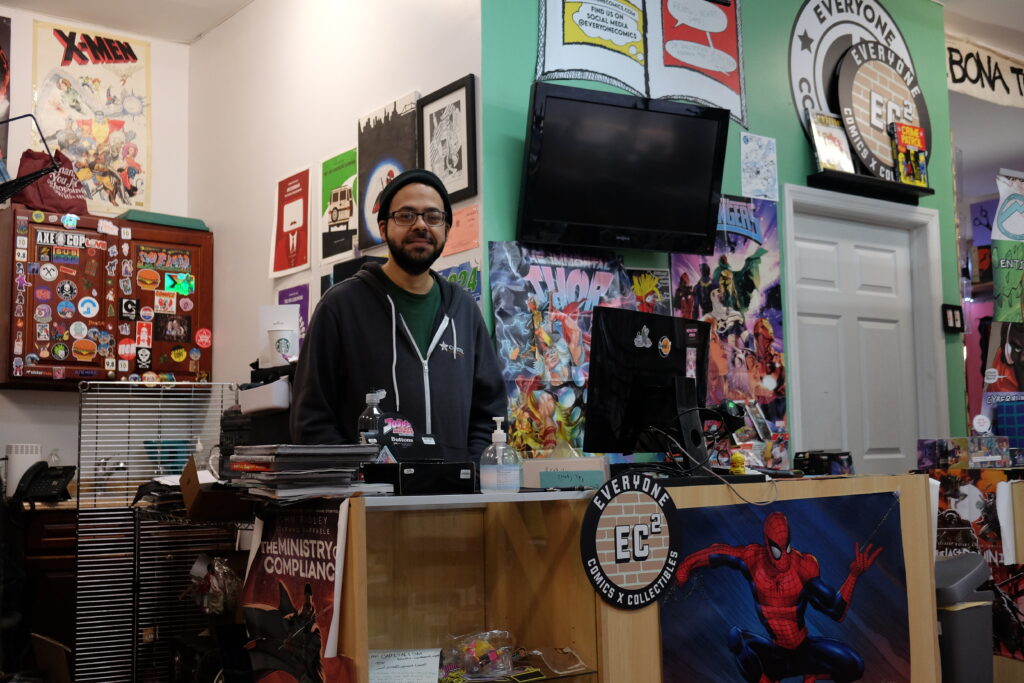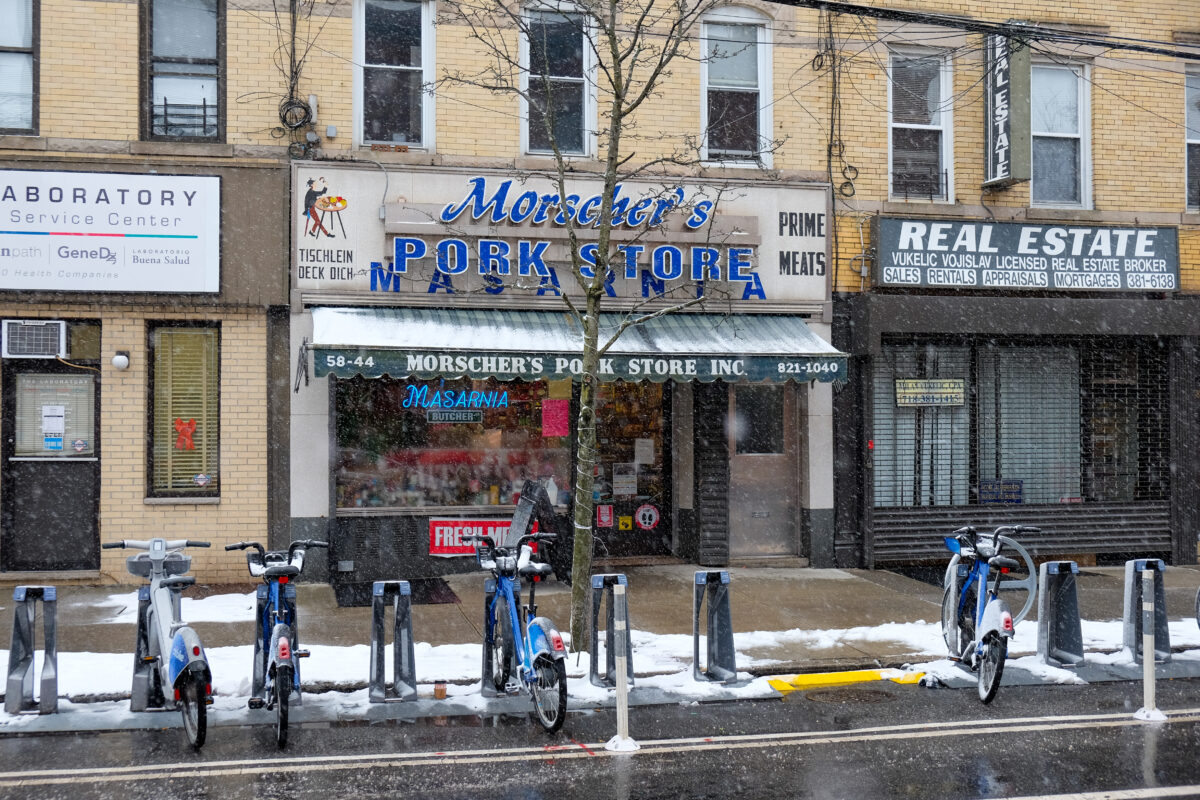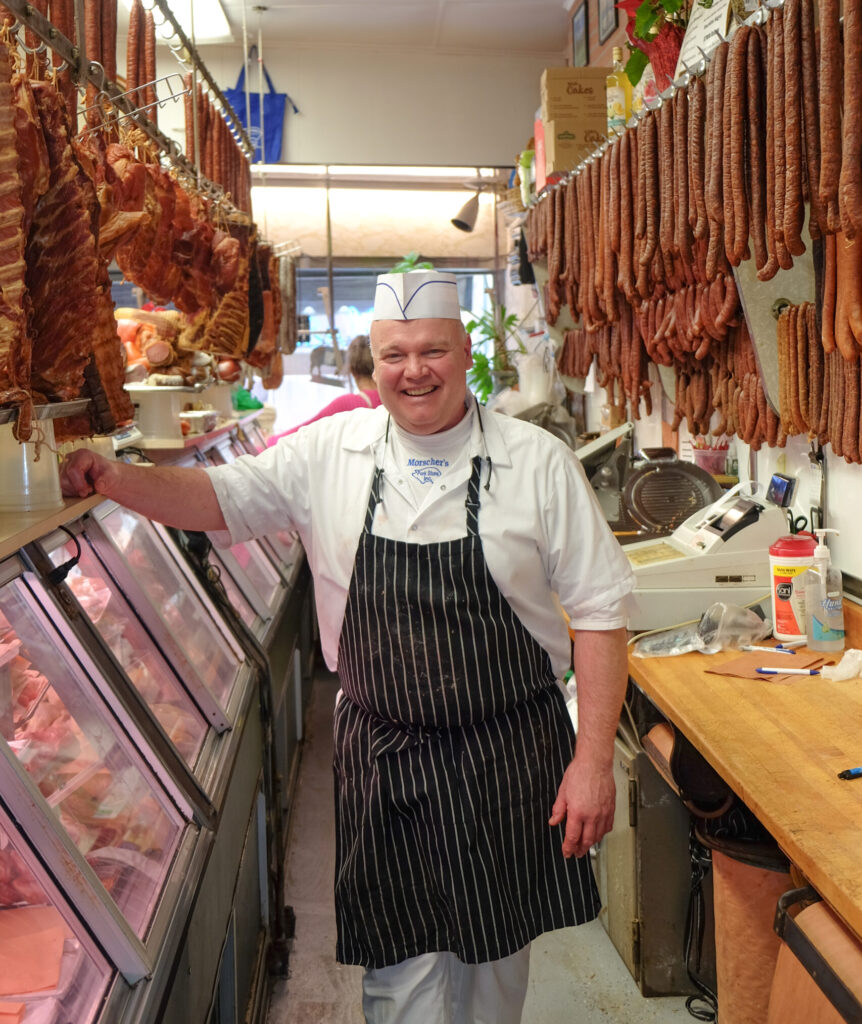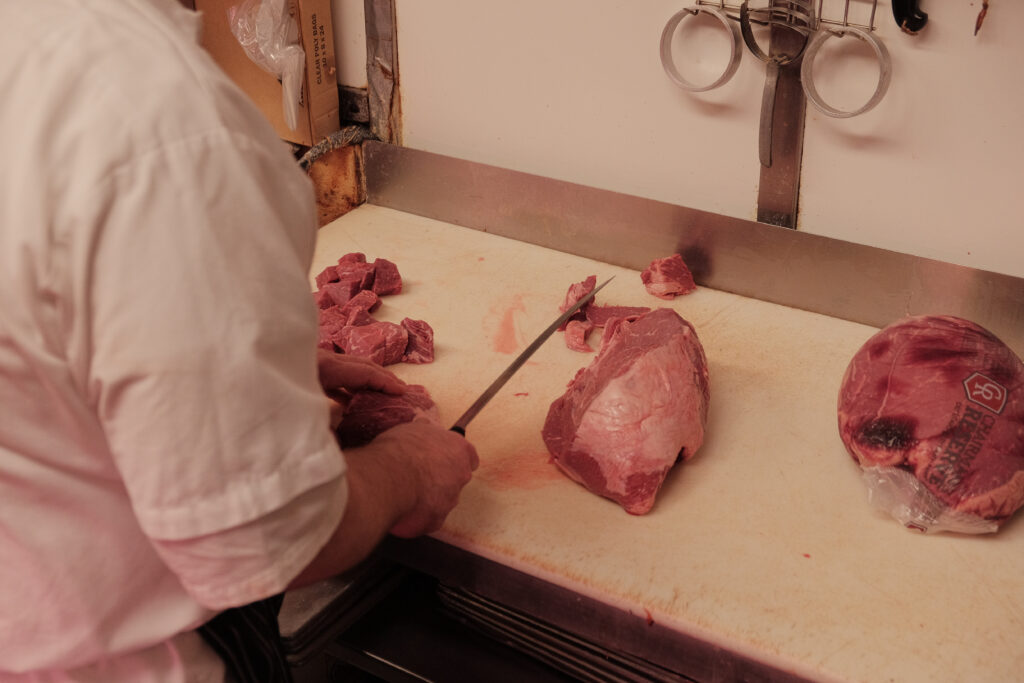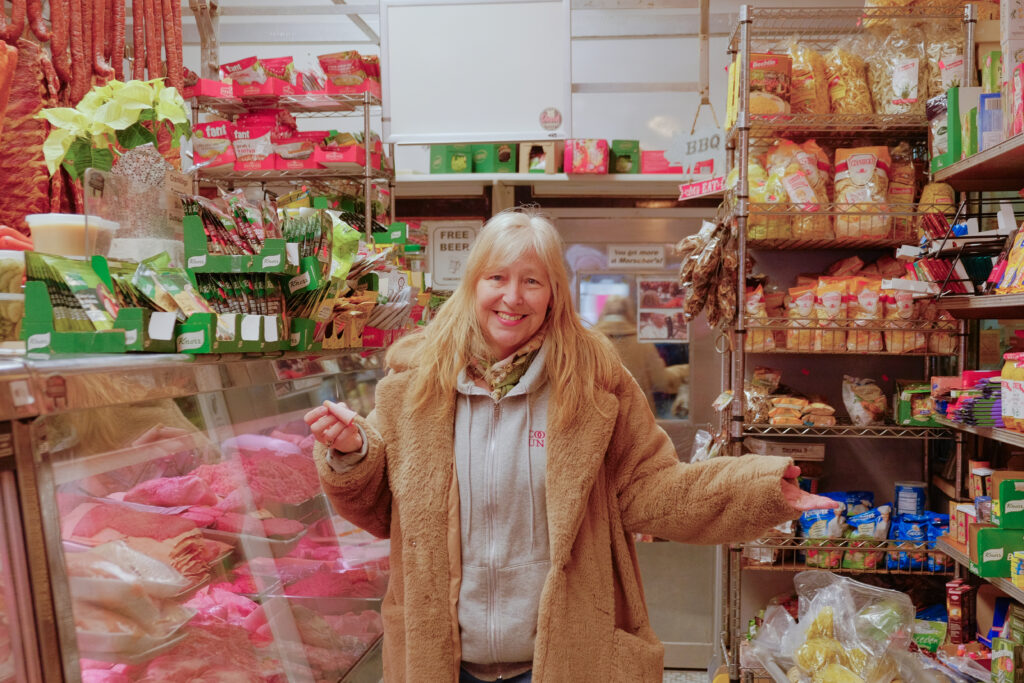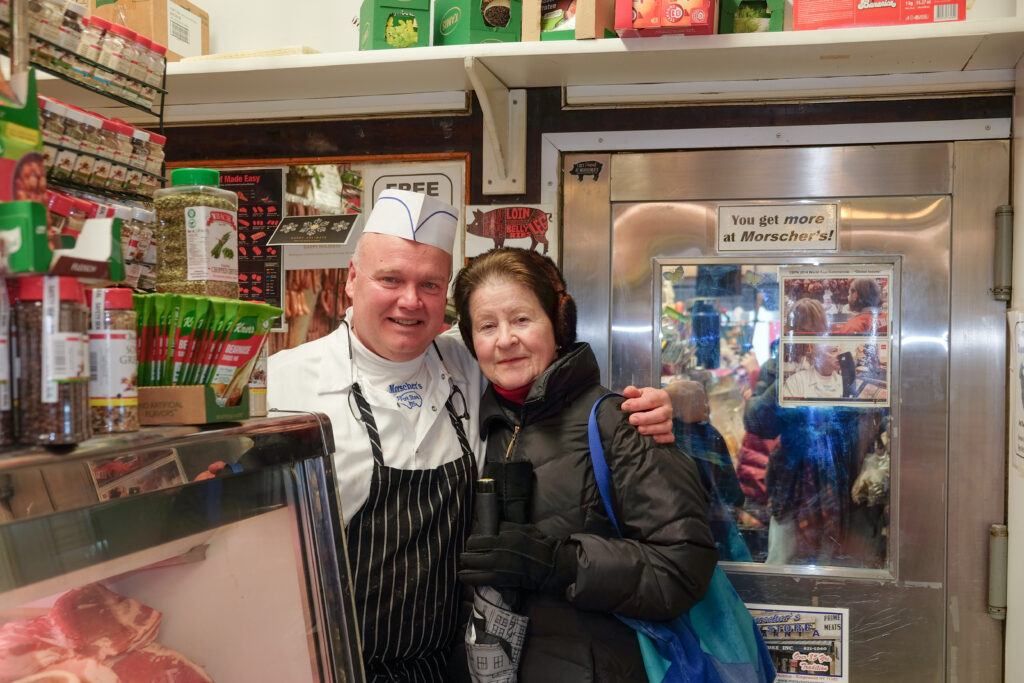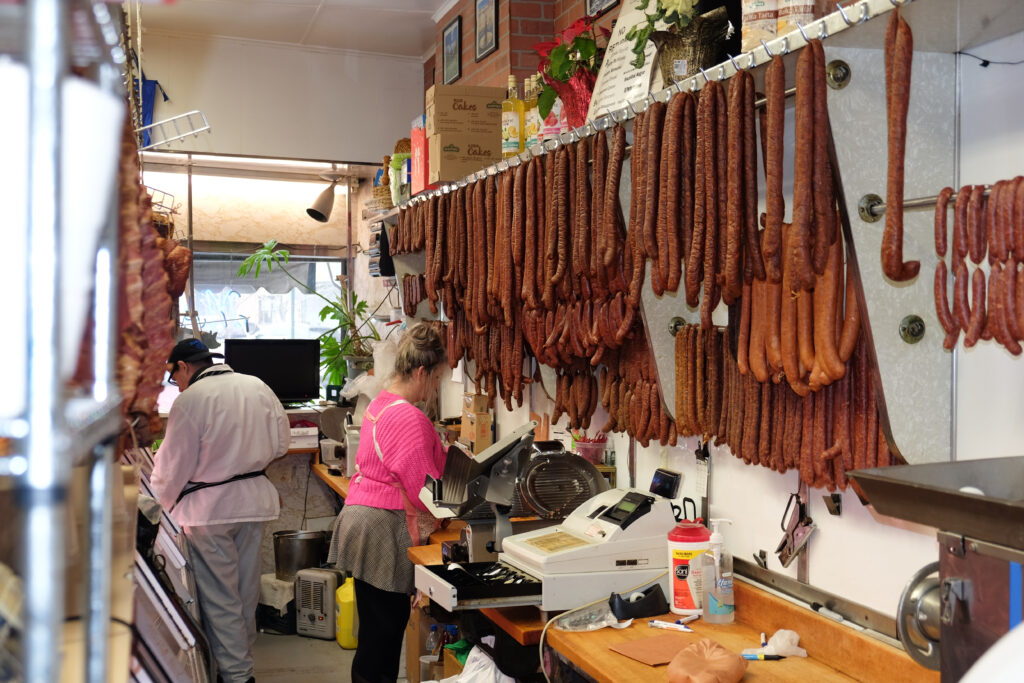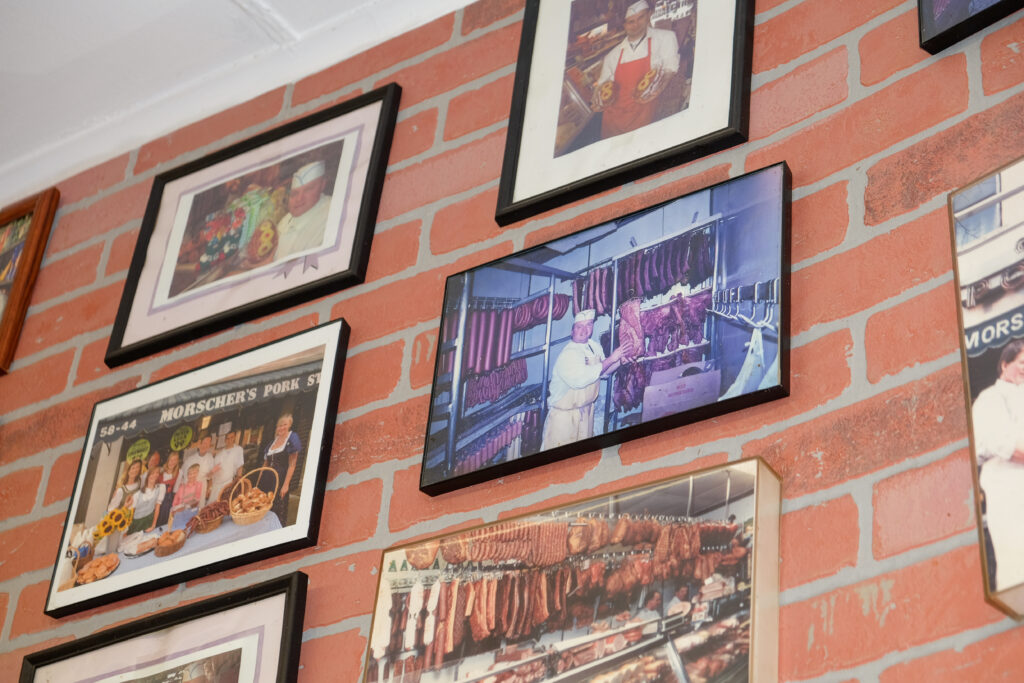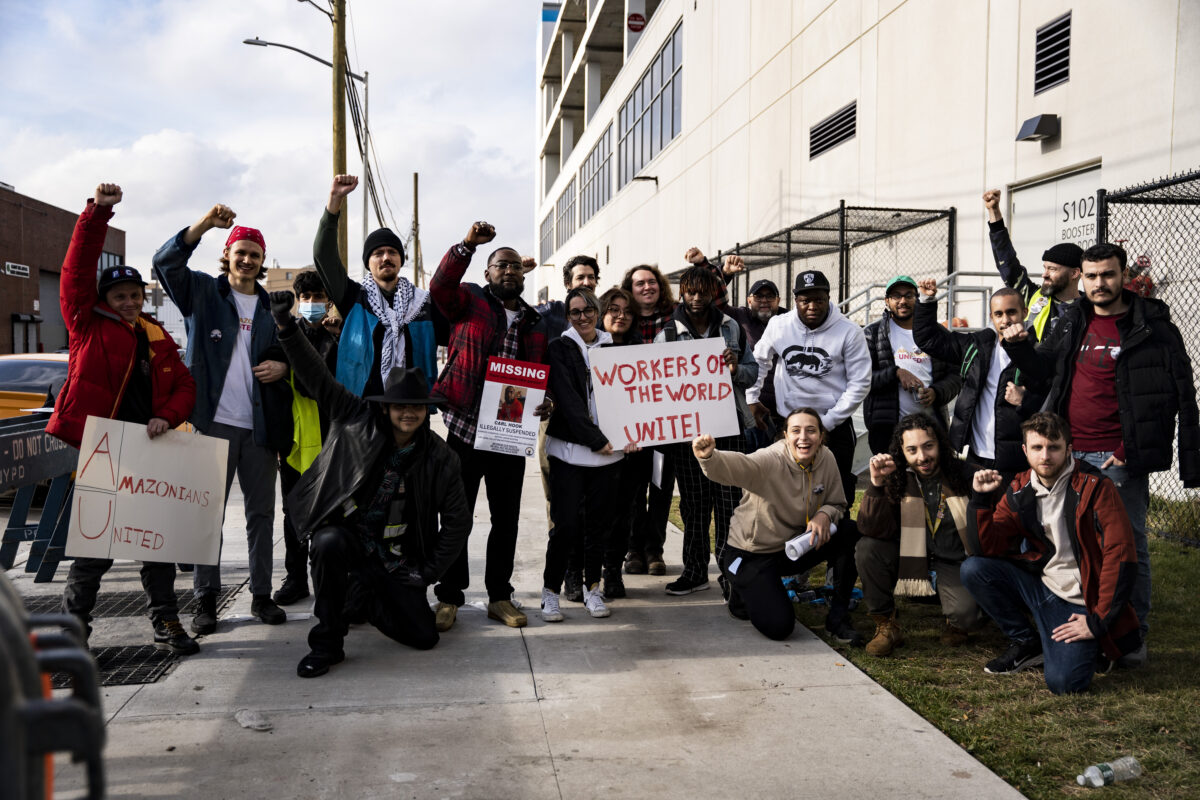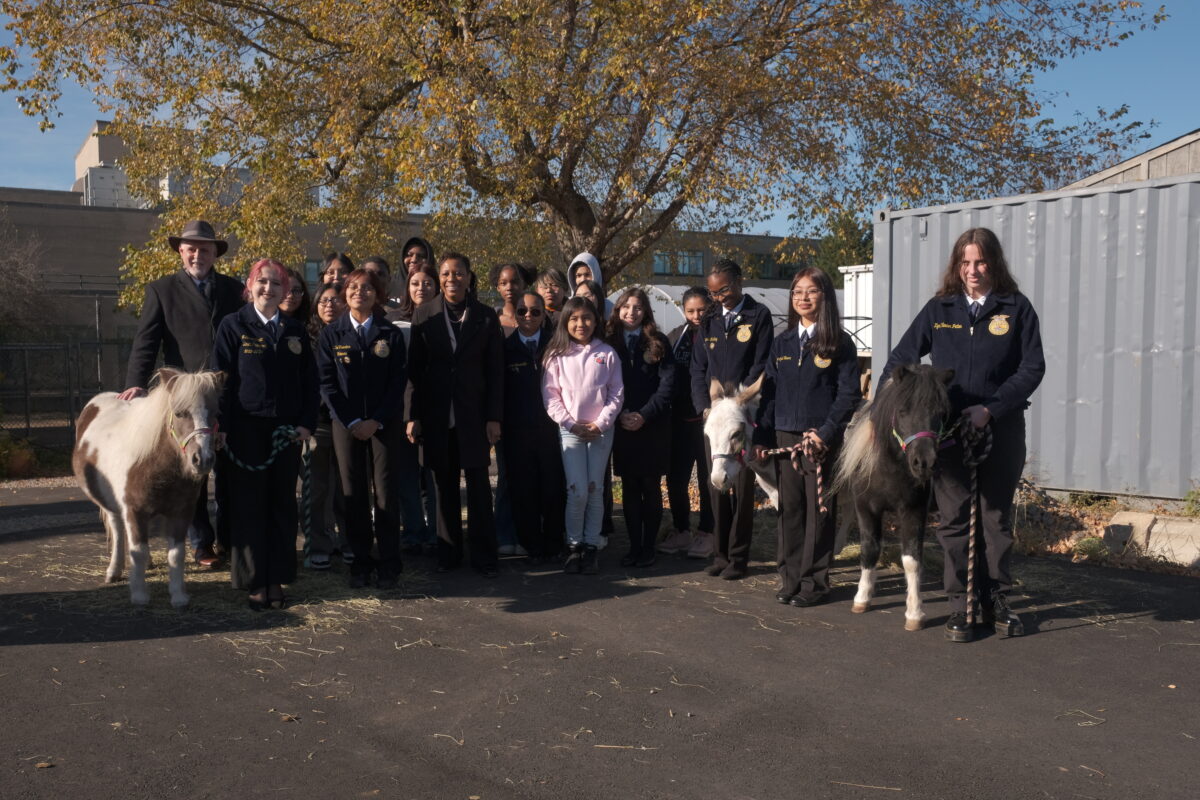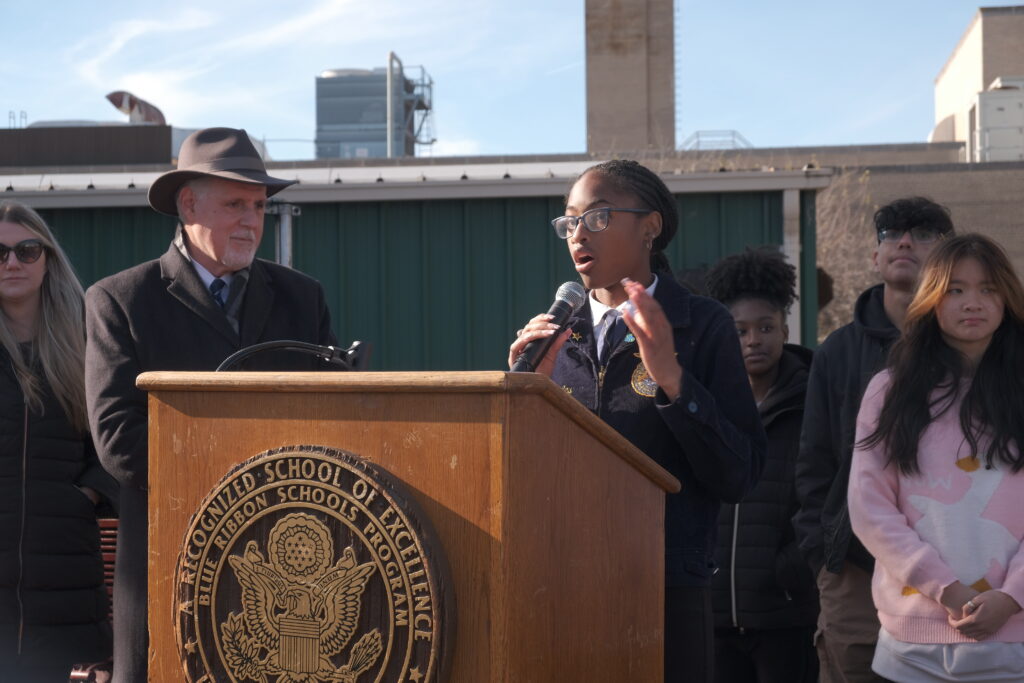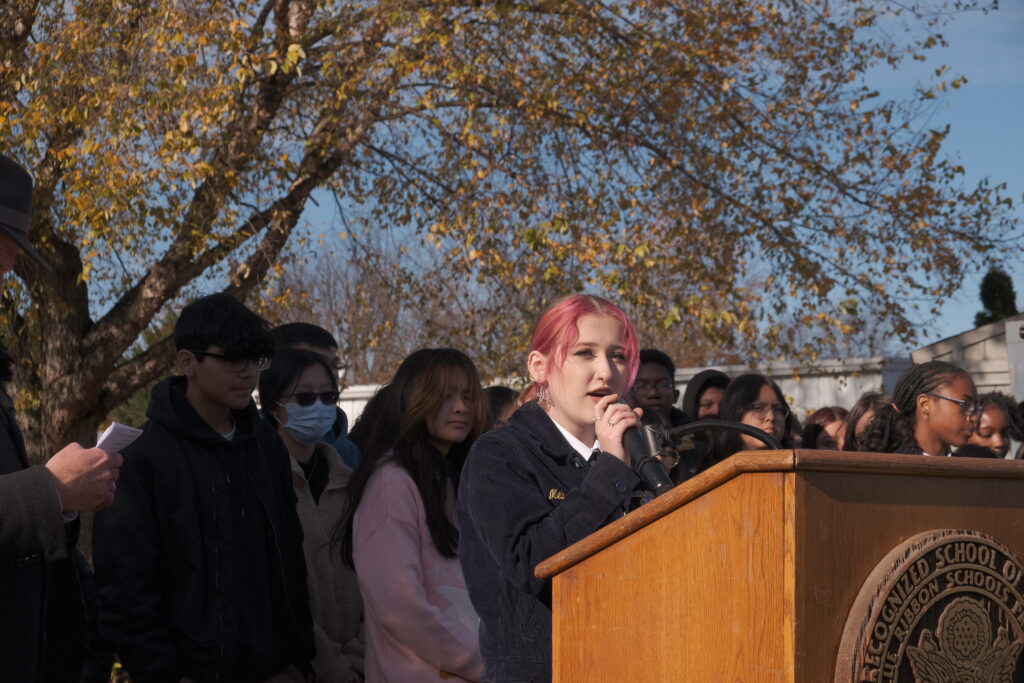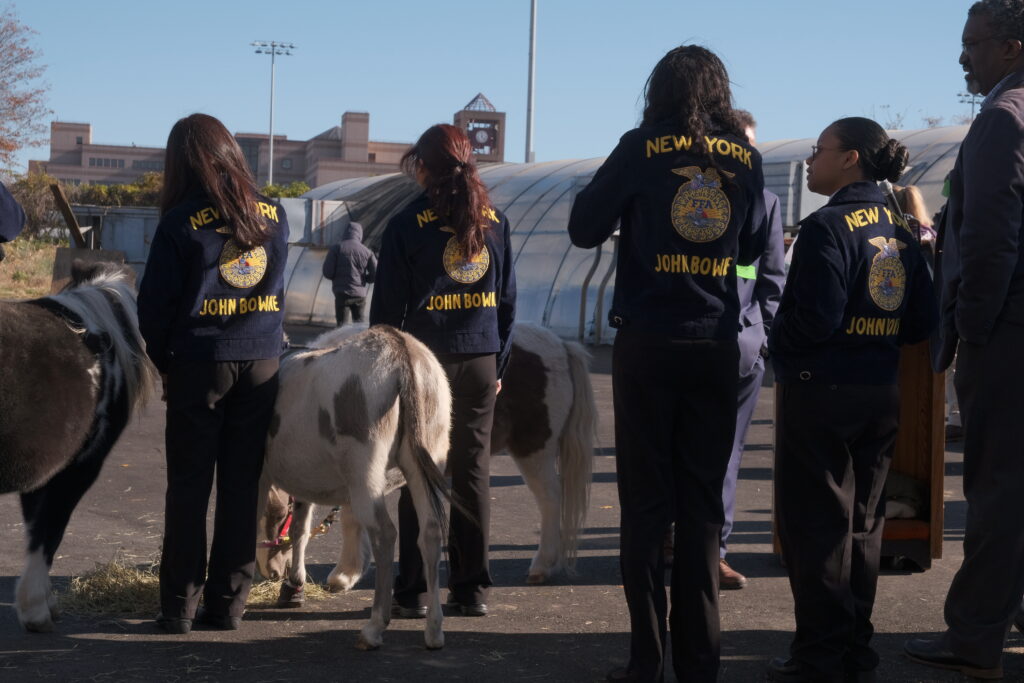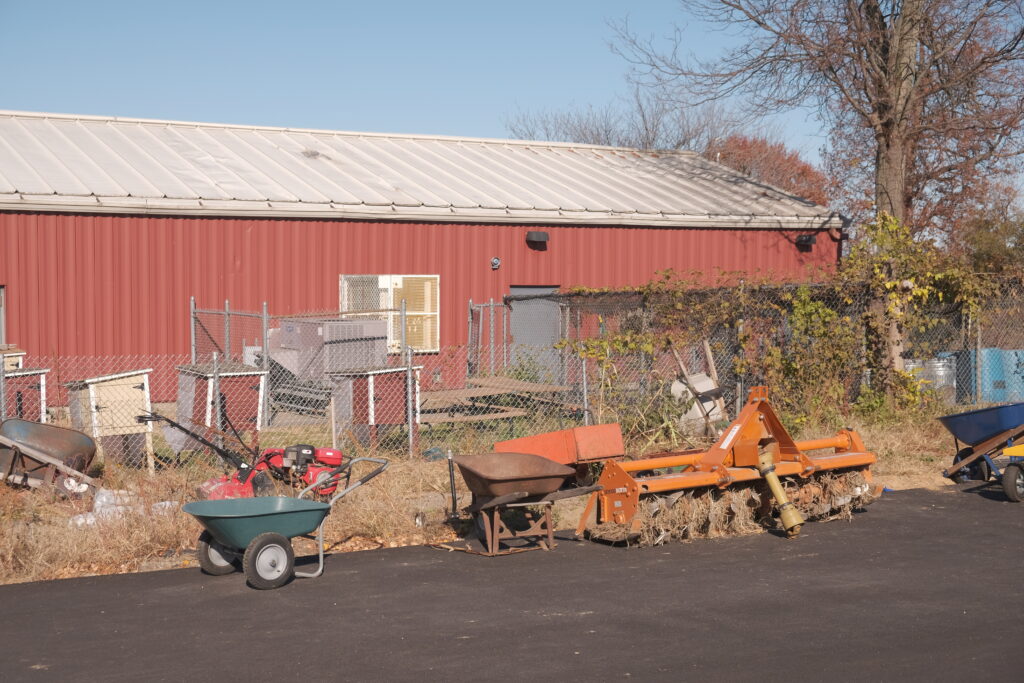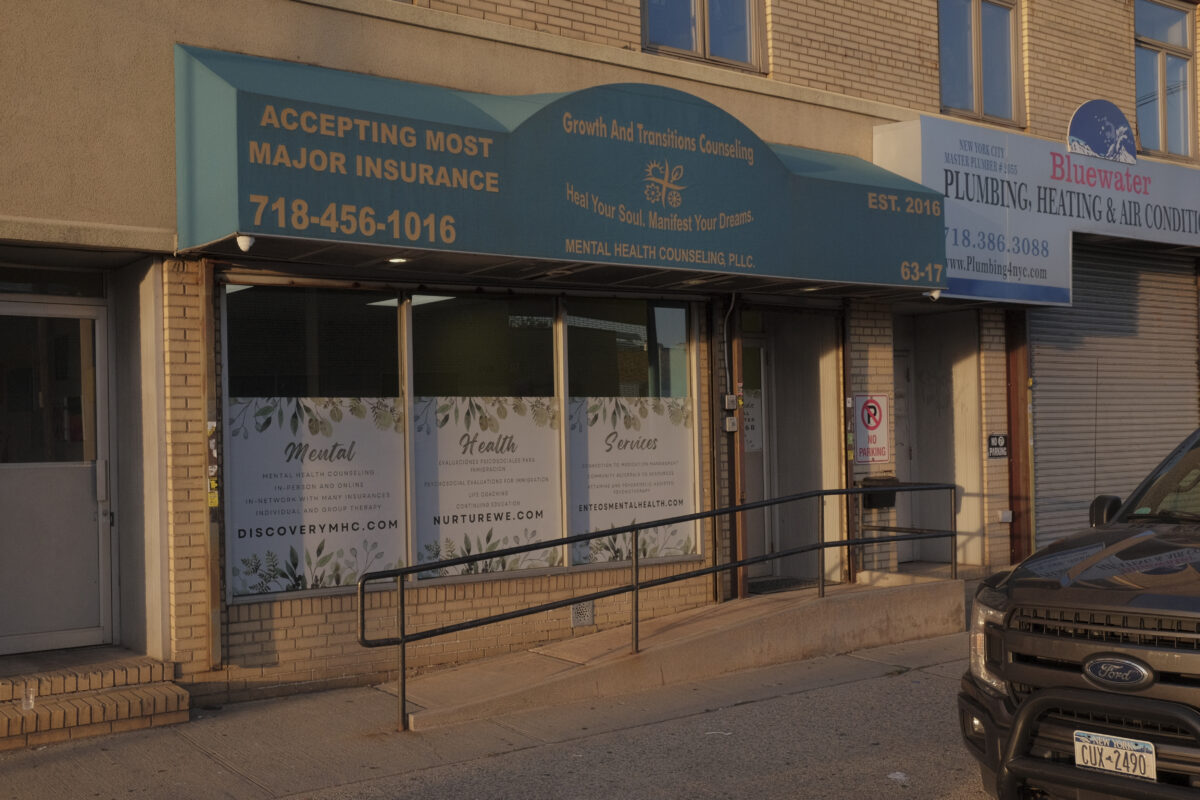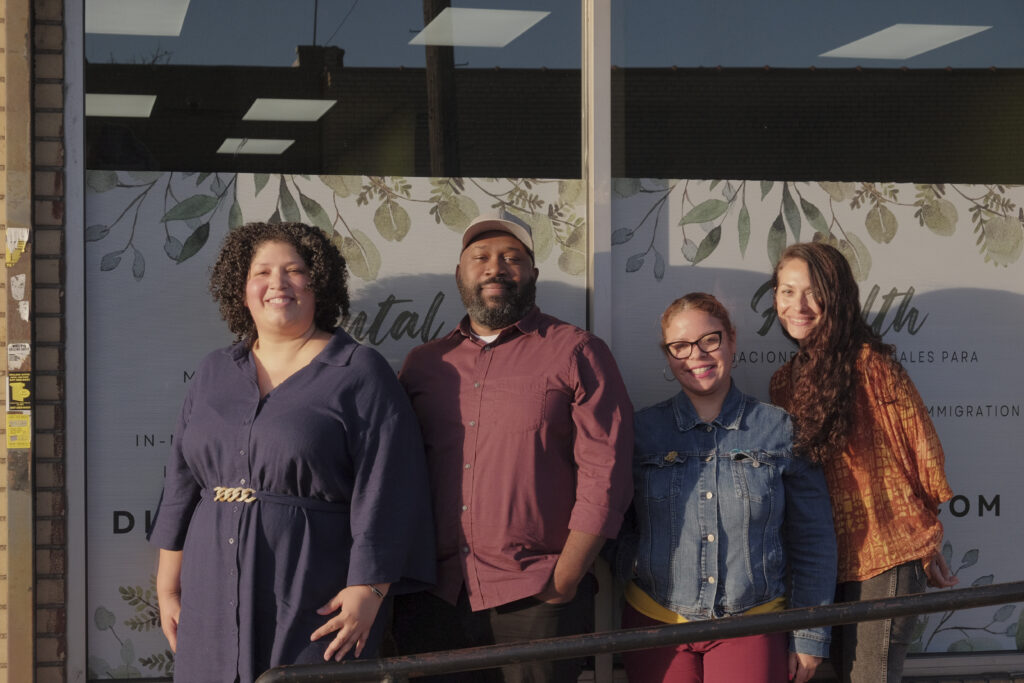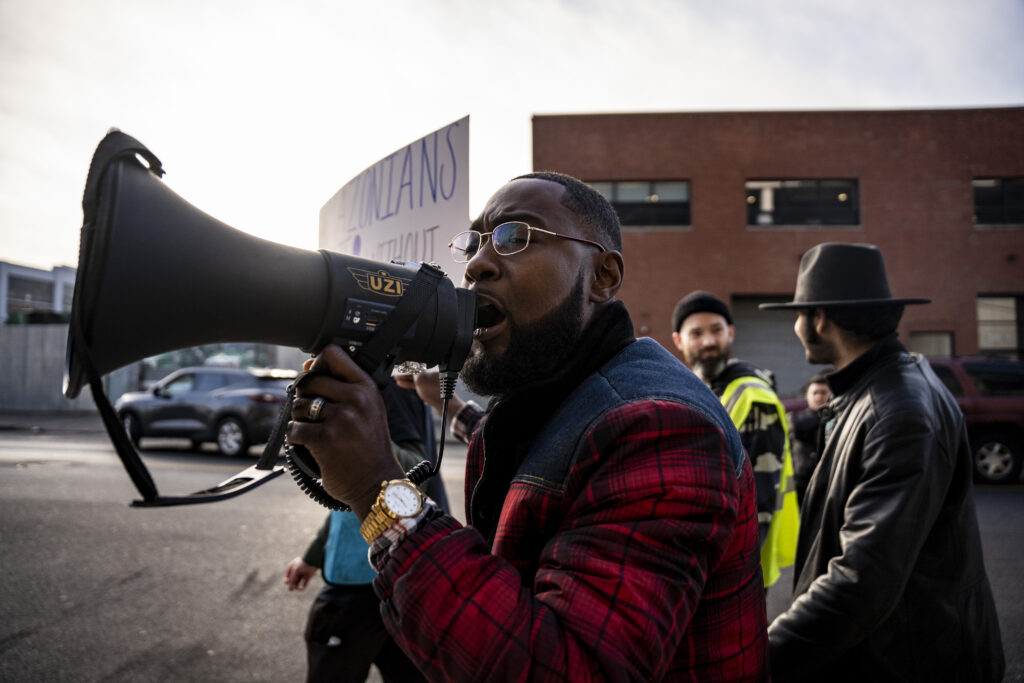
Photos courtesy of Luigi Morris (@luigiwmorris) and Amazonians United
By Charlie Finnerty | cfinnerty@queensledger.com
Workers and contractors at Amazon warehouse DBK4 at 55-15 Grand Ave in Maspeth staged a demonstration Saturday asserting their right to unionize and alleging that illegal union-busting tactics had been used at the facility. Workers led a picket line outside and delivered signed petitions to management which declared their intent to establish a union and detailed the allegations of unfair labor practices. Among these allegations is the claim that 40-year-old delivery driver Carl Hooks was unlawfully fired for attempting to organize a union at the facility. Hooks was a delivery associate for Champion Logistics CMLG, one of several third-party delivery service partners (DSPs) which facilitate deliveries for Amazon at DBK4. The site is the largest Amazon facility in New York City.
After initially being placed on suspension, Hooks said he was informed of his termination around 10 p.m. the evening before the protest was planned. According to Hooks, he had been collecting signatures for a unionization petition shortly before being fired. He said management cited an incident in which he was smoking a cigarette in his delivery truck over a month earlier as cause for termination.
“I’ve worked warehouse work for 13 years of my life, ” Hooks said. “I’m 40 years old, I’ve been working for a very long time. But I like delivering, I like driving, I like being by myself. I’m not so much of a loner, I’ve got a big family, but I don’t want nobody over my back pointing their finger at me.”
Hooks said he was motivated to join the efforts to organize the Amazon facility by workplace conditions he felt were becoming unacceptable, including warehouse workers being placed in small crowded spaces and what he described as disrespectful treatment from management.
“It’s dehumanizing, it’s horrible,” Hooks said. “I don’t know what a sweatshop factory is like in China, but it’s not too far from it. The work conditions are horrible.”
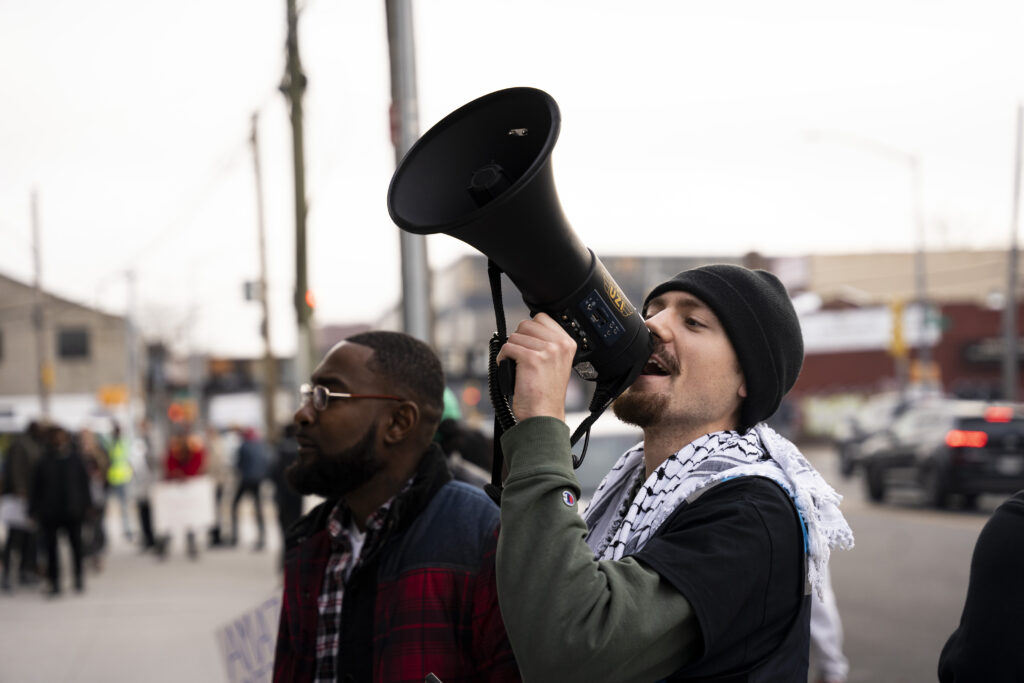
Photos courtesy of Luigi Morris (@luigiwmorris) and Amazonians United
Hooks lives in the Bronx with his wife and four kids but said he took a job at the DBK4 facility to be closer to his grandmother who lived nearby and passed away this fall.
“I went to the station in Queens because it was closer to my grandmother and I wanted to spend some more time with her before she passed,” Hooks said. “When I go to work, I work. I don’t go to work and play around and do nonsense, I’m 40 years old. I got four kids and a wife and I didn’t understand why they were doing this to me now.”
A three-year Amazon driver, Hooks said he has been awarded numerous times for his performance at Amazon. After losing his job, Hooks started a GoFundMe page to help provide for his family while he is interviewing for new jobs.
“It was just upsetting, man. Truthfully, I would like to have my job because I love my job. If didn’t, I wouldn’t have been doing it for three years,” Hooks said. “But I probably won’t ever want to work for Champion Logistics again because I don’t think they deserve a Carl. They don’t deserve a person like me who works for them everyday and busts their butt.”
Dylan Maraj, a worker at DBK4 and organizer for Amazonians United, said the goals of the demonstration were to demand higher pay, safer working conditions and an end to the alleged illegal attempts to undermine unionization.
“This is a struggle that every worker is going through. We are not treated correctly, we are treated like replaceable pawns to them,” Maraj said. “We do not make enough to sustain ourselves, do not make enough benefits to sustain ourselves, we wreck our bodies constantly.”
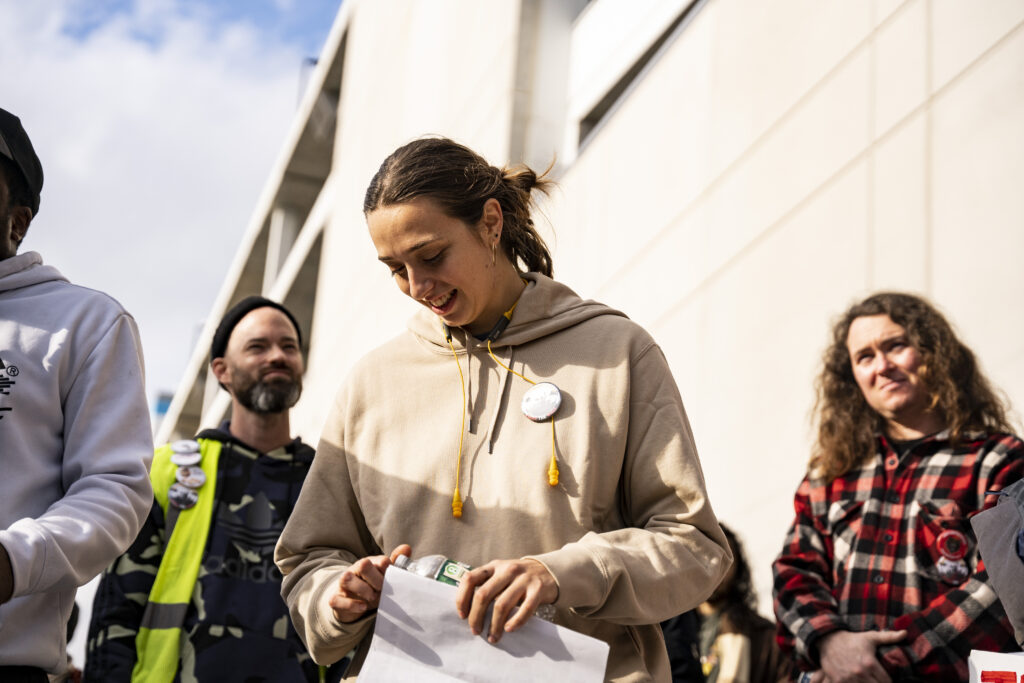
Photos courtesy of Luigi Morris (@luigiwmorris) and Amazonians United
In a written statement, Amazon Spokesperson Eileen Hards said, “Despite a small demonstration, the activities had no impact on our operations or ability to deliver for customers.”
Amazon declined to comment on Hooks’ termination since he was employed by Champion Logistics, a DSP, and not directly employed by Amazon. There is no contact information for Champion Logistics CMLG available online. The individual whose name appears on the Department of State website’s listing for Champion Logistics CMLG did not respond to comment when messaged via LinkedIn. Previous reporting from other outlets incorrectly referred to a separate business with a similar name which has no affiliation with Amazon and does not have any offices or facilities in New York.
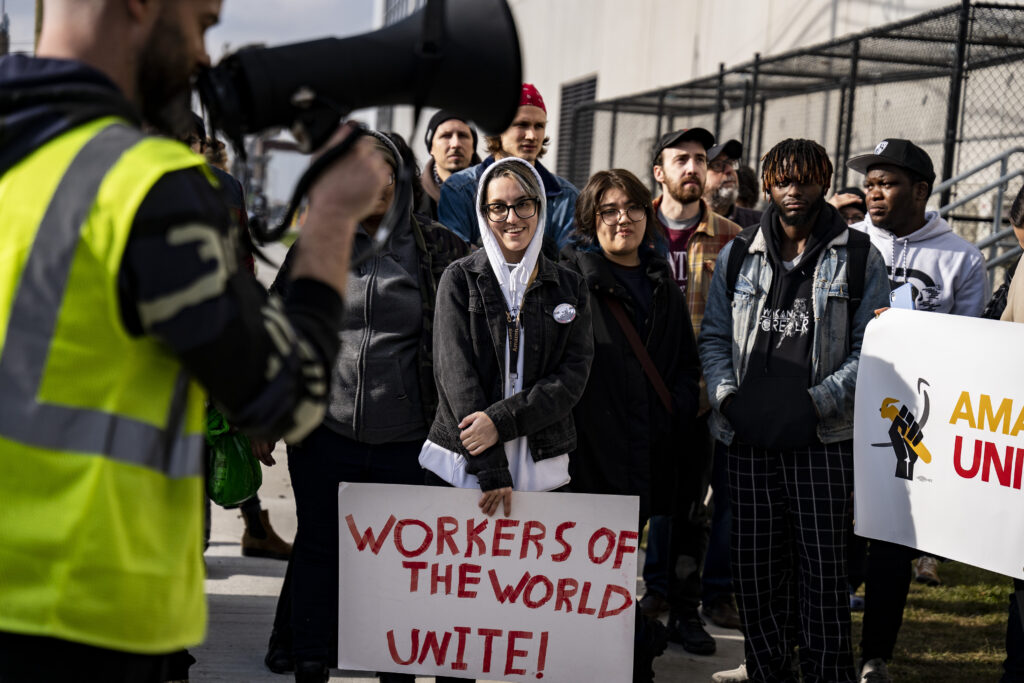
Photos courtesy of Luigi Morris (@luigiwmorris) and Amazonians United
TikTok account @au_nyc (AmazoniansUnitedNYC) posted several videos of the demonstration. In one video, workers and organizers proclaiming their right to form a union and advocate for better working conditions are told by an unidentified manager: “We can give you a job. We can give you money. We can give you Dunkin Donuts.” Several boxes of donuts from Dunkin’ can be seen on a table behind him. In another video, workers attempting to hand a signed petition to a manager are told the petition cannot be accepted. Outside the facility, Hooks can be seen leading chants and marches with a bullhorn in hand.
Maraj said for the most part, there has been a positive response from workers across the facility and roughly 70 workers joined the picket line throughout the afternoon.
“We’ll always have detractors in the warehouse from people who don’t understand or are not fully bought in to the whole unionizing effort,” Maraj said. “But I think people understand that this job does not have a good structure to it, that we get mistreated constantly.”
The picket line prevented deliveries from being made at the facility for roughly an hour in the morning, according to Maraj, but was temporarily lifted when it became clear that drivers were being forced to bear the costs of lost business.
“They were retaliating, not against us on the picket, but the delivery drivers who were showing up to work, and that has to be explained,” Maraj said. “A lot of the drivers were raising their firsts in solidarity from the roof and honking at us in solidarity as they passed by.”
According to Maraj, unionization efforts at DBK4 began almost as soon as the site opened in August 2022 and he joined the organizing effort less than two months later. He said Saturday was the largest single action staged in that time.
“Management to this point is very resistant to come to the table or even accept anything from us because that would open up bargaining. They’re continuously doing this stuff to try to dampen the organizing or just kill it,”Maraj said. “But we’re not going to stop fighting until we win those rights for not just us, but for all the workers in there that are struggling.”
In addition to broader demands for safety and compensation, Maraj also said that the bonuses workers relied on in the past during peak season, like the winter holidays, have been absent this year. As the holiday season approaches, Maraj said he wanted to remind people of the strain that increased delivery traffic puts on Amazon warehouse workers and drivers.
“People need to see that two day Prime shipping comes with a cost,” Maraj said. “The workers are overworked to insane amounts and not compensated correctly. We get you want your packages, but you need to know, in this economic climate, we need to be treated correctly. We need to know that we are receiving what we are worth. We make millions and millions of dollars nightly for this warehouse, we cannot just keep going home with pennies on the dollar.”
Despite losing his job at Amazon and Champion Logistics, Hooks said he does not regret taking action to organize his fellow workers at the facility.
“I’m not the only one with a problem, I’m just the first one that stood up and said I’m not taking it no more,” Hooks said. “I don’t want anybody to go down for this but it’s not right, so I’m gonna take the L for the whole team.”
Hooks said he hopes the organizing effort at DBK4 can inspire other workers to fight for their right to be treated well by their employer.
“For those that are scared to fight, you can’t be scared,” Hooks said. “If you don’t stand for something you’re gonna never stand. You’re gonna never stand. No one should live on their knees.”
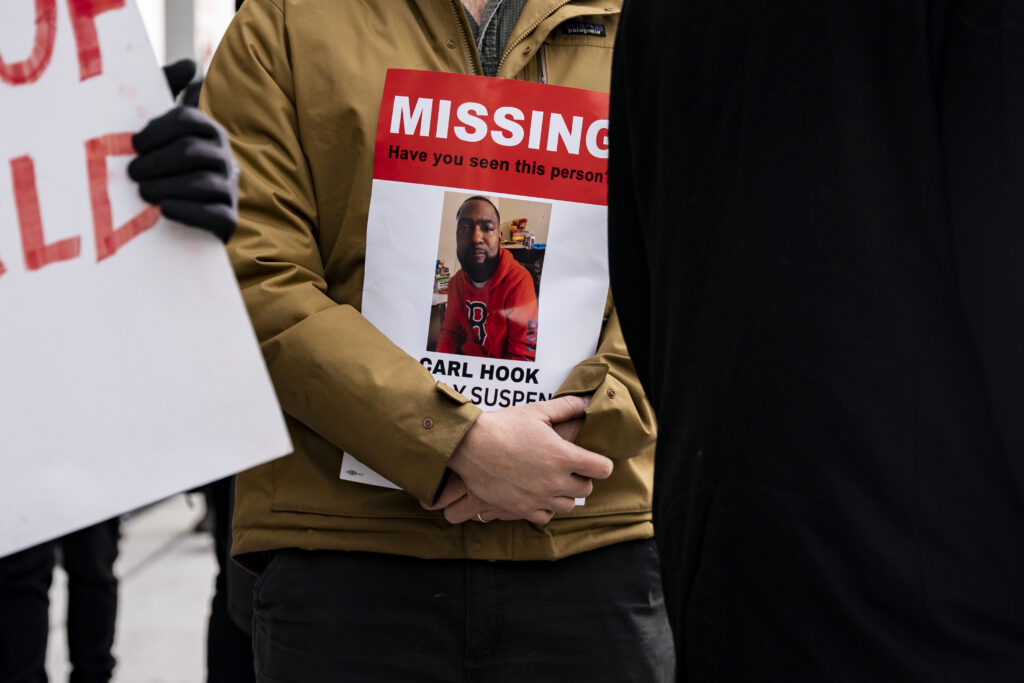
Photos courtesy of Luigi Morris (@luigiwmorris) and Amazonians United
